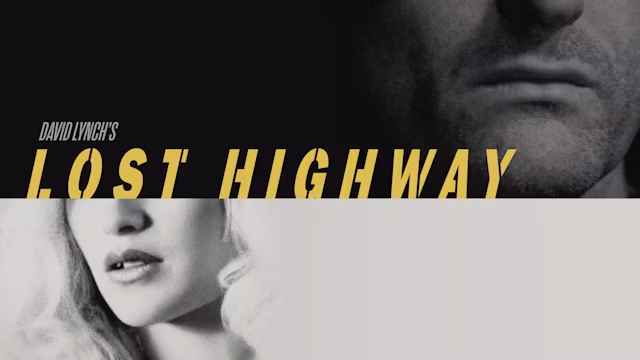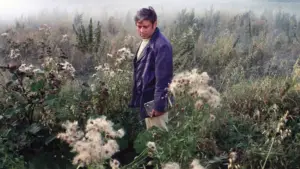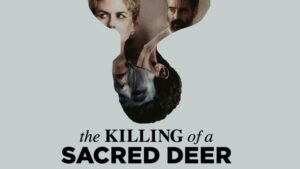Table of Contents
Introduction: Understanding the Enigma of Lost Highway
David Lynch’s Lost Highway is a film that defies easy interpretation, weaving a complex narrative that blurs the boundaries between reality and illusion. In this blog post, we will delve deep into the many layers of this mind-bending film, exploring psychological and philosophical dimensions that enhance its intrigue.
As we explore Lost Highway explained, we will uncover themes of identity, memory, and perception. Lynch offers viewers a labyrinthine experience, inviting us to confront our understanding of self and existence. Each viewing reveals more hidden nuances, making it a film that continuously sparks discussion and debate.
Join us on this journey as we unravel the intricate web of meaning behind Lost Highway.
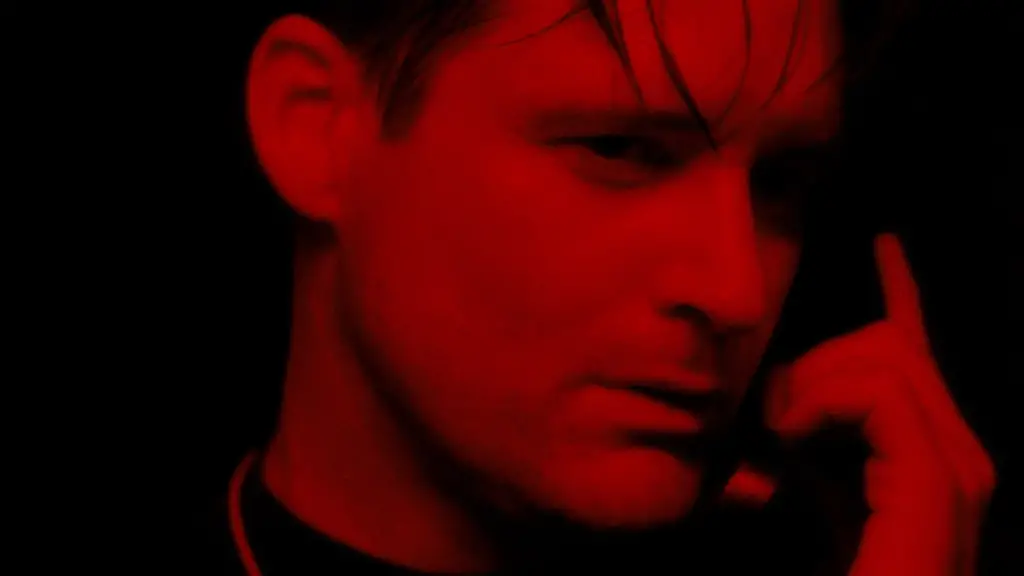
The Duality of Identity: Psychological Fragmentation in Lost Highway
In Lost Highway, the theme of psychological fragmentation plays a central role, highlighting the complex nature of identity. The film intricately explores how our perceptions of self can become distorted, leading to a fractured understanding of who we are. This duality of identity is profoundly illustrated through the experiences of its main character, Fred Madison.
The Mysterious Transformation
Fred’s unsettling journey begins with a series of cryptic messages and bizarre events, leading to a radical transformation of his identity. As he oscillates between two distinct personas—Fred and Pete—we witness the unraveling of a cohesive sense of self. This split reflects the psychological concept of dissociation, where an individual experiences a disconnection between thoughts, identity, consciousness, and memory.
The film presents Fred’s transformation not merely as a narrative twist but as a symbolic representation of deeper psychological turmoil. As he grapples with the repercussions of his actions and the nature of his relationships, we must ask ourselves: what is real within the confines of his psyche? The disjointed storytelling mirrors Fred’s inner chaos, illustrating how trauma and guilt can fracture one’s identity into segments that resist integration.
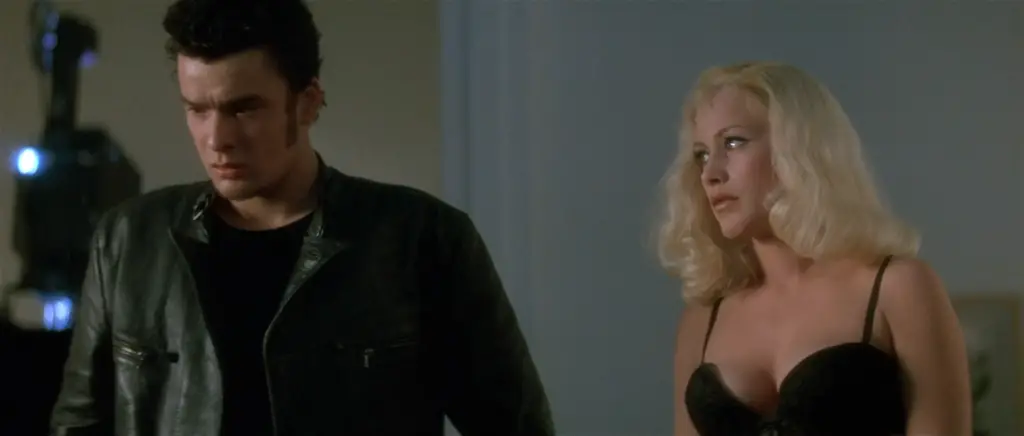
The Impact of Relationships
Another pivotal aspect of identity exploration in Lost Highway is Fred’s interactions with other characters. His relationships, particularly with Renee and the enigmatic Mystery Man, further exacerbate his psychological disintegration. These figures embody aspects of Fred’s psyche, drawing out his fears and desires while simultaneously blurring the boundaries of his identity.
The film complicates our understanding of these relationships. Are they external manifestations, or do they exist within Fred’s conflicted mind? Fred’s struggle with intimacy and trust is mirrored in the way he perceives and engages with these characters. They serve as reflections of his fractured identity, where each interaction sparks a deeper descent into confusion and disarray.
The Circular Nature of Time and Memory
Lost Highway also engages with the philosophical implications of time and memory, adding another layer to the exploration of identity. The film’s non-linear structure suggests that memories are not fixed; instead, they are fluid and often subject to distortion. This idea resonates strongly with psychological theories surrounding the malleability of memory.
Fred’s quest to reclaim his identity becomes a cyclical journey, marked by recurring motifs of loss and repetition. The film posits that our memories shape our identities but are simultaneously vulnerable to reinterpretation. The collision of past and present forces both Fred and the audience to confront the fragility of one’s understanding of self—an essential theme in comprehending the complexities of identity in Lost Highway.
The Nature of Reality: Philosophical Implications in Lost Highway
Constructing Identity and Reality
In Lost Highway, identity is fluid, fragmented, and constantly shifting. The protagonist, Fred Madison, finds himself trapped in a whirlwind of events that blur the lines between reality and perception. This narrative device raises profound philosophical questions about the nature of identity. Are we defined by the experiences we perceive, or do those experiences construct a reality that may be entirely illusory?
Philosopher René Descartes famously posited, “I think, therefore I am,” suggesting that our existence is tied to our capacity for self-reflection. In the film, however, Fred’s identity comes under siege as his reality crumbles. The dual persona he assumes forces the audience to confront questions about what it truly means to be oneself. Is Fred merely a product of his environment and relationships, shackled to the events that unfold, or does he possess an intrinsic self that persists despite these transformations?
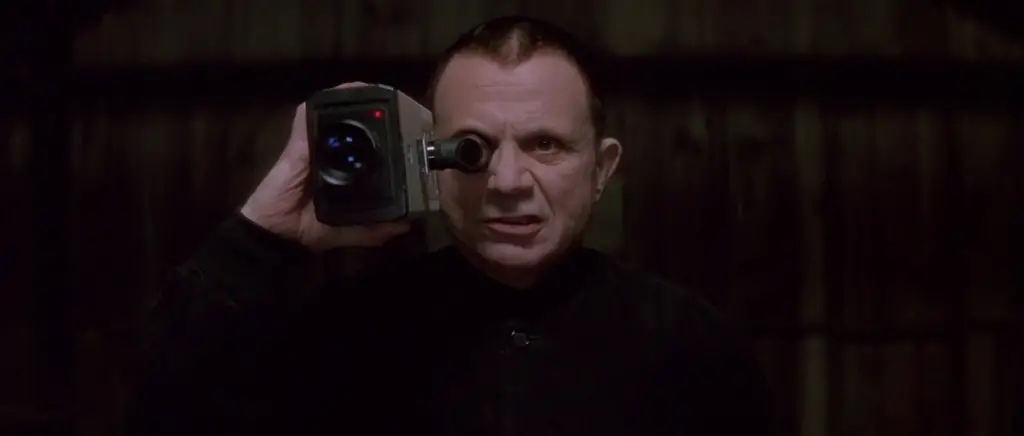
The Role of the Unconscious Mind
At the core of Lost Highway lies the exploration of the unconscious mind—a realm where repressed thoughts, memories, and desires intertwine. David Lynch, known for his surreal storytelling, employs this theme to suggest that our subconscious can dictate our perceptions of reality.
Sigmund Freud’s theories on the unconscious provide a backdrop for understanding the film’s tension. In losing grip on his identity, Fred exemplifies a kind of psychological dissolution, where dreams and reality conflate. The narrative’s non-linear structure mirrors the workings of the unconscious, where time is irrelevant, and meaning often eludes rational comprehension. This highlights how our perceptions of reality can be colored by our internal struggles, bringing forth the question: Can we trust our own minds?
The Illusion of Time and Space
Lynch crafts a world where time and space are not fixed. The film’s unpredictable temporal shifts prompt viewers to reconsider the nature of their own reality. Philosophers like Henri Bergson and Martin Heidegger have grappled with the concept of time, distinguishing between measured time (chronos) and lived time (kairos).
In Lost Highway, the characters experience a disjointed reality that reflects lived time—a fluid experience where past, present, and future intertwine. This portrayal challenges the idea that reality is something we can neatly categorize or understand. Instead, it presents reality as an intricate tapestry woven from personal experiences, memories, and desires. Reality, then, becomes not just what we see, but how we interpret and live through our experiences.
By exploring these philosophical implications, Lost Highway invites the audience to engage in a deeper contemplation of their perceptions, ultimately suggesting that the nature of reality is far from a straightforward concept. Each viewer’s journey through the film reflects their struggles with identity, consciousness, and the essence of existence itself.
The Role of Memory: The Psychological Depths of Lost Highway
The Fragmented Nature of Identity
In Lost Highway, the exploration of memory fundamentally challenges our understanding of identity. The protagonist, Fred Madison, experiences a series of disorienting events that lead him to question his own reality and existence. Memory serves as a core theme, emphasizing how fragmented recollections can shape one’s identity, and ultimately distort the perception of self. As we witness Fred’s seamless transition between lives, we are forced to confront the idea that our memories — both intentional and forgetful — can construct or deconstruct who we are.
The film’s nonlinear narrative structure mirrors how the mind often recalls experiences. It reflects the chaotic nature of human memory, which isn’t linear but rather a tangled web of emotions and events. Lost Highway illustrates this complexity by allowing viewers to oscillate between Fred’s experiences and those of Pete Dayton. This duality can be interpreted as a psychological manifestation of Fred’s struggle against guilt and trauma, showcasing how one can become lost within their own memory.
The Influence of Guilt and Trauma
A crucial element of memory in Lost Highway is its connection to guilt and trauma. Fred’s life spirals into chaos following a series of ominous events, leading to a psychological breakdown. Through his memories, the film communicates the haunting presence of trauma; incidents that are repressed or altered in the mind often resurface in more disturbing ways. The oppressive presence of the “Mystery Man” symbolizes the dark aspects of Fred’s psyche, tormenting him with his unresolved guilt and past.
Trauma influences Fred’s memories, distorting his perception of reality. The film’s surreal imagery and unsettling atmosphere evoke the subconscious mind, where fear and dread shape one’s experiences. What makes Lost Highway compelling is its capacity to delve into how memory can serve as both a safeguard and a prison, creating an intricate interplay between past experiences and present actions.
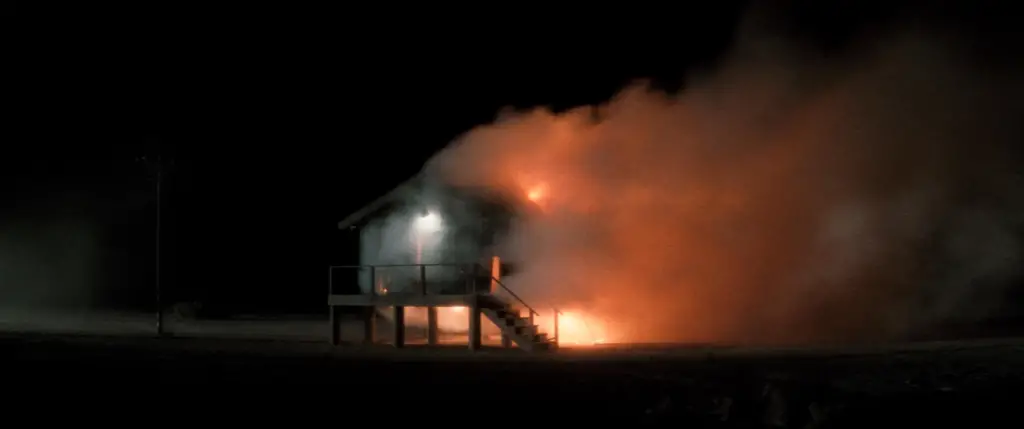
The Process of Reconstructing Reality
The journey through Lost Highway exemplifies the psychological struggle of reconstructing reality from fragmented memories. Fred’s descent into a dual existence raises profound questions about the malleability of memory. As he navigates between identities, we witness the subjective nature of truth; how one can alter their narrative to survive emotional fallout.
The film invites viewers to indulge in philosophical reflections on the purpose of memory — whether it is to protect us from pain or to complicate our understanding of reality. The act of recollection is not purely a cognitive exercise but is influenced by emotions, experiences, and even external perceptions. In this light, Lost Highway becomes a rich canvas interrogating the very essence of memory and its role in shaping human experience.
Visual and Narrative Techniques: Crafting the Uncanny Experience
The Power of Cinematography
In Lost Highway, David Lynch employs striking cinematography to enhance the film’s psychological depth. The choice of low lighting, stark contrasts, and surreal imagery creates a visual landscape that feels both haunting and disorienting. The camera often lingers on objects and faces, inviting viewers into a space of intimacy and discomfort.
Scenes such as the hauntingly beautiful shots of the highway or the chilling framing of the characters contribute to a sense of the uncanny. The visual style mirrors the chaotic, fragmented narrative, drawing parallels between the characters’ inner turmoil and their external environment. With Lynch’s keen eye for detail, every frame becomes a puzzle piece, challenging the audience to delve deeper into the film’s layers.

Sound Design and Its Psychological Impact
Accompanying the striking visuals is an intricate sound design that heightens the eerie atmosphere of Lost Highway. The auditory experience is filled with ambient sounds—distorted echoes, industrial noises, and unsettling silences—that ground the film in a nightmarish reality. Lynch skillfully manipulates sound to evoke emotional responses, echoing the characters’ psychological states.
For instance, the use of static, dissonant tones, especially in scenes involving the mysterious phone calls, enhances feelings of anxiety and paranoia. This disorientation is further emphasized through the film’s score, which blends genres and defies traditional music cues, allowing the viewer to feel as unmoored as the characters themselves. The sonic landscape serves not only to support the narrative but also deepens the suspense and tension that permeate the story.
Nonlinear Storytelling and Psychological Dislocation
The nonlinear narrative structure is perhaps the most significant technique in Lost Highway that embodies the theme of psychological dislocation. Lynch crafts a story that defies conventional storytelling, weaving in and out of different realities, identities, and timelines. This technique effectively immerses the audience in the fractured psyche of the protagonist.
By presenting events out of order and intertwining two seemingly separate narratives, Lynch deliberately disorients viewers. This dislocation mirrors psychological phenomena such as dissociation, forcing audiences to confront their own understanding of reality. As we piece together the fragments of the film, we are led to question the nature of identity and memory—themes central to the narrative. The disjointed progression of events ultimately contributes to a haunting exploration of the mind, reinforcing the film’s enigmatic quality.
Recommended Reads: Literary Adventures Aligned with Lost Highway
Exploring the labyrinthine depths of Lost Highway invites a greater engagement with themes of identity, reality, and consciousness. Here are five literary adventures that resonate with the enigmatic essence of David Lynch’s film.
The Unbearable Lightness of Being by Milan Kundera delves into the philosophical dichotomies of existence and the weight of choices. Kundera explores how our decisions shape our identities, mirroring the fragmented and often surreal journey of the characters in Lost Highway. Buy The Unbearable Lightness of Being here
Crime and Punishment by Fyodor Dostoevsky offers a profound exploration of morality, guilt, and the psyche. The psychological tension and existential ponderings found in Dostoevsky’s narrative align seamlessly with the twisted narrative structure and psychological intensity of Lost Highway. Buy Crime and Punishment here
Existentialism is a Humanism by Jean-Paul Sartre serves as a pivotal exploration of human freedom and the angst that accompanies choice. This philosophical treatise echoes the themes of alienation and identity crisis prevalent in Lost Highway, making it a thought-provoking companion to the film. Buy Existentialism is a Humanism here
The Interpretation of Dreams by Sigmund Freud is foundational in understanding the complexities of the human mind, especially concerning dreams and the unconscious. This work can help unravel the dreamlike narrative and its deeper meanings within Lost Highway, inviting readers to ponder their interpretations of reality. Buy The Interpretation of Dreams here
House of Leaves by Mark Z. Danielewski is a mind-bending narrative that plays with form and structure, challenging readers to navigate its twisting layers. This book, with its non-linear storytelling and intricate designs, finds a kindred spirit in the surreal storytelling and disorienting atmosphere of Lost Highway. Buy House of Leaves here
Conclusion: Reflecting on the Journey Through Lost Highway
In unraveling the mystery of Lost Highway, we delve into the psychological and philosophical complexities that make this film a compelling exploration of identity, reality, and memory. Through its intricate narrative and innovative techniques, Lost Highway challenges our perceptions, inviting us to reflect on our own experiences of existence.
As we tie together the threads of this enigmatic film, it becomes clear that Lost Highway explained transcends mere storytelling—it becomes an exploration of the depths of the human psyche. By embracing its challenges and intricacies, we can appreciate the powerful commentary it offers on life’s inherent uncertainties and the fragmented selves we embody.
Take a look at all our in-depth reviews here.

